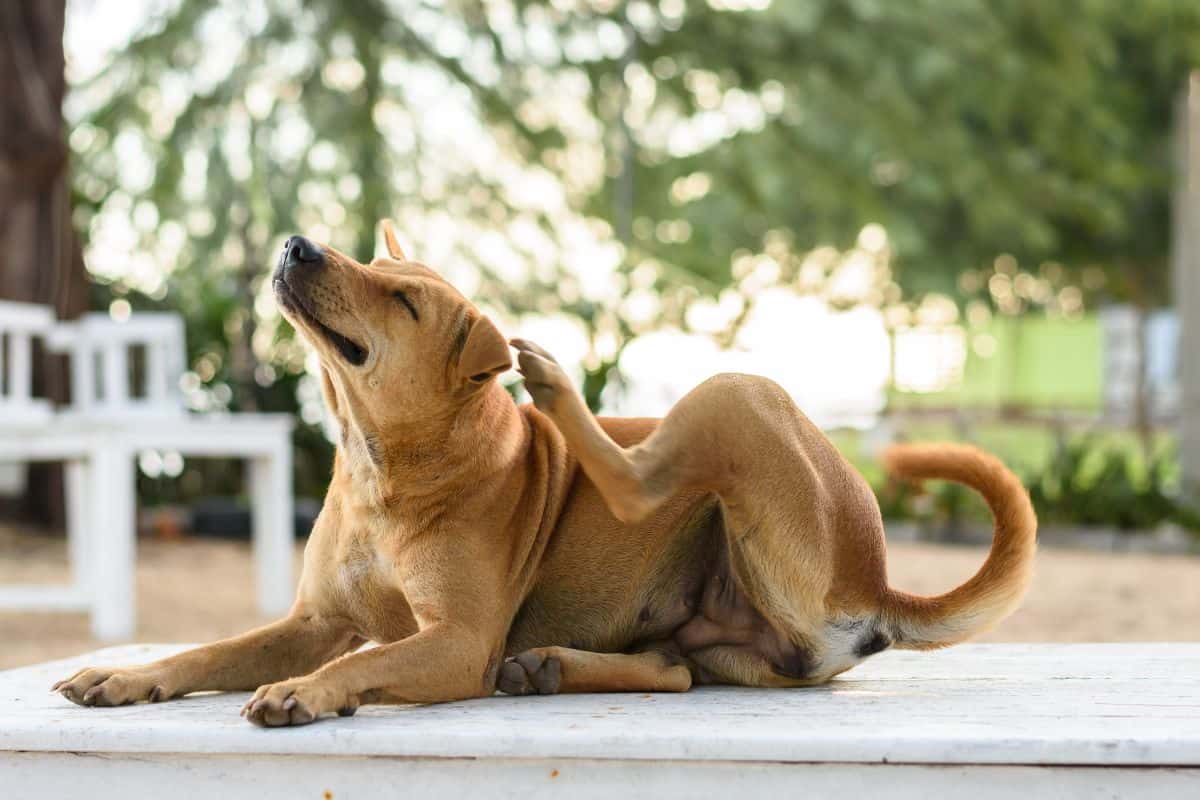Why Is My Dog Itchy After Grooming?

If you've ever wondered, "Why is my dog itchy after grooming?" fret not! Discover the reasons behind this common concern and expert tips to bring back your furry friend's comfort.
Have you ever noticed your dog scratching relentlessly after a grooming session? You're not alone. Grooming is an essential part of your pet's care routine, keeping their coat clean and healthy. However, it's disheartening to see them uncomfortable and itchy after what's meant to be a refreshing experience. In this article, we will delve into the reasons behind your dog's post-grooming itchiness and offer expert solutions to alleviate their discomfort. Let's dive in!
Understanding the Causes of Itchiness After Grooming
- Residual Shampoo or Grooming Products: Shampoo or grooming products may linger on your dog's skin, causing irritation. Rinse thoroughly to prevent residue and itchiness.
- Sensitivity or Allergic Reactions: If your dog has sensitive skin or is allergic to certain ingredients in grooming products, they may experience itching. Opt for hypoallergenic products and perform patch tests.
- Clipper Irritation or Razor Burn: Improper use of clippers or razors can cause skin irritation, resulting in itchiness. Such irritation will show visible red bumps or redness of the skin.
- Drying Out of the Skin and Coat: Frequent baths and blow-drying can strip natural oils, leading to dry skin and itchiness. Consider reducing bathing frequency and using moisturizing products.
- Underlying Skin Conditions: Some dogs may have pre-existing skin issues, such as dermatitis or allergies, which can worsen after grooming. Regular checkups with a veterinarian are vital to rule out any skin issues.
Common Signs of Itchiness
- Excessive scratching or licking: If your dog can't stop scratching or licking, it's a sign of discomfort.
- Redness and inflammation: Watch out for red, irritated patches on their skin.
- Hot spots or sore spots: These are localized areas that feel warm and painful to the touch.
- Changes in coat quality: An itchy dog may develop a dull, unkempt coat due to constant scratching.
- Restlessness and discomfort: Itching can make your dog feel restless and uneasy.
How to Relieve Itching After Dog Grooming
- Thorough Rinsing and Drying: Rinse your dog's coat thoroughly, and gently pat dry to remove excess moisture.
- Applying Natural Remedies to Soothe the Skin: Calming ingredients like oatmeal or aloe vera can provide relief to irritated skin. Always consult your vet before trying new remedies.
- Consultation with a Veterinarian for Prescription Solutions: If the itching persists, your vet may prescribe medicated shampoos or treatments for underlying skin issues.
- Diet Adjustments for Potential Allergies: Your dog's diet may play a role in their itching. Consult a veterinarian to determine if any dietary changes are needed.
Preventive Measures to Minimize Post-Grooming Itchiness
- Regular Grooming and Bathing Schedule: Stick to a consistent grooming routine to prevent excessive dirt buildup or matting but no more frequent than once every couple of weeks.
- Choosing the Right Grooming Tools and Products: Use high-quality, pet-safe grooming tools and products to avoid skin irritation.
- Patch Testing for Allergies: Before using new grooming products, perform a patch test to check for allergic reactions.
- Proper Grooming Techniques and Handling: Learn correct grooming techniques to avoid accidental injuries and irritation.
- Maintaining a Clean Living Environment: Keep your pet's living area clean to minimize exposure to allergens and irritants.
When to Seek Veterinary Assistance
- Persistent and Severe Itching: If your dog's itching doesn't improve or worsens, consult a vet for further evaluation.
- Worsening Skin Condition: Any deterioration in your dog's skin health requires professional attention.
- Presence of Open Sores or Wounds: Seek immediate veterinary help if your dog develops sores or wounds from excessive scratching.
- Behavioral Changes Due to Itching: Itching can affect your dog's behavior. If they seem distressed, consult your vet promptly.
Frequently Asked Questions
Avoid using human grooming products on dogs, as they may contain ingredients harmful to pets. Choose pet-safe alternatives.
Your dog may be reacting to specific grooming products or techniques. Experiment with different products and consult a professional groomer if needed.
Certain breeds with sensitive skin or dense coats may be more prone to itchiness after grooming. Understanding your dog's breed-specific needs can help.
Discontinue grooming and consult a veterinarian immediately. Your dog may be experiencing an allergic reaction or skin irritation.
Yes, a diet that triggers allergies can contribute to itching. Consult your vet to determine if a dietary change is necessary.
Post-grooming itchiness in dogs is a common concern, but with the right knowledge and care, you can help your furry companion find relief. By using hypoallergenic products, proper grooming techniques, and seeking veterinary guidance when needed, you can ensure that your dog enjoys a comfortable and itch-free grooming experience. Remember, a happy and healthy dog makes for a happy pet parent!
 Author - Joseph Schifano
Author - Joseph Schifano
Joseph Schifano is the owner and President of The Academy of Pet Careers. With over 20 years of experience working in the pet field, managing large scale pet care businesses, he has experience in every facet of the industry. Joseph's focus is primarily on the business of pet care but his passion is in understanding animal behavior how a dog's brain works so we can improve the care we provide as pet professionals. He is a huge advocate for Pet Empowerment and Force Free training methods. Read more in Joseph's full bio.
